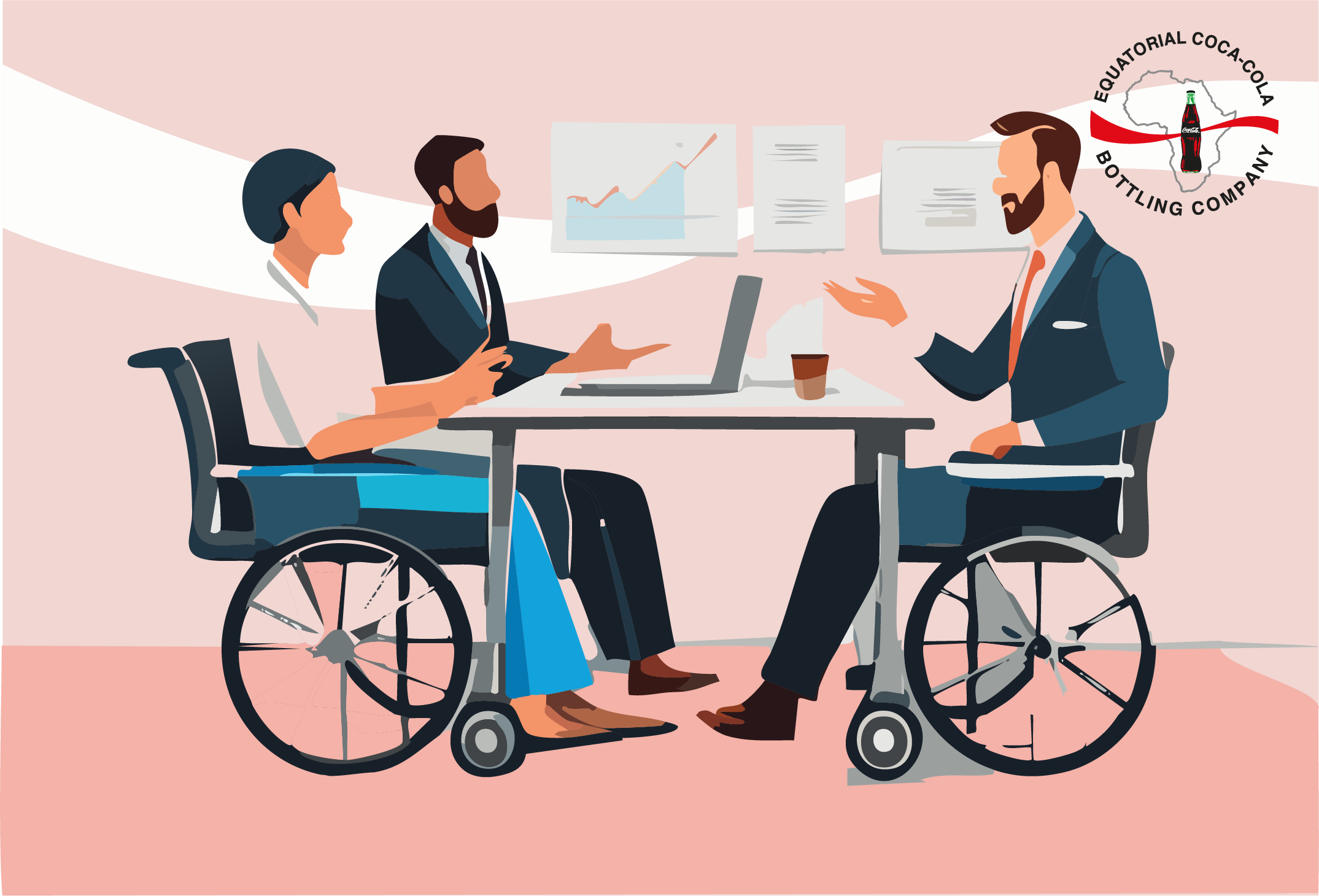Hello there,
Welcome to this new episode of the ECCBC Podcast. Today, we’re going to talk about an essential topic that is often overlooked: the inclusion of people with disabilities in the workplace. It’s not just a matter of social responsibility—it’s a real opportunity to build a richer, more diverse, and more equitable work environment for everyone.
In this episode, we’ll discuss the importance of inclusion, the benefits it brings to each of us, and especially, how we as colleagues can take action to ensure everyone feels respected and valued, regardless of their challenges.
Why is disability inclusion essential?
Disability inclusion isn’t just a formality or a legal requirement. It’s about human values. It’s about giving everyone the chance to fully participate in professional life, no matter their disability.
Disability is not a barrier to competence. In fact, people with disabilities bring unique talents, fresh perspectives, and often incredible adaptability that can enrich our work environment. For example, someone in a wheelchair might excel in analytical roles, or a person who is hard of hearing could be an outstanding project leader. What matters is focusing on what a person can contribute, not on what we assume they can’t.
The benefits of including people with disabilities
There are many advantages to integrating people with disabilities into our teams:
- Enriched perspectives: By welcoming people with disabilities, we open the door to different ideas and approaches. These colleagues bring unique insights that can reshape how we solve problems. The diversity of experience is a major driver of innovation.
- Greater empathy and solidarity: Working with colleagues who face different challenges fosters empathy. It creates a culture of respect, where everyone feels valued. We learn to support one another and build stronger connections.
- Highlighting human qualities: Disability inclusion shines a light on qualities like empathy, collaboration, and adaptability. It helps us grow collectively by challenging our assumptions and appreciating talent in its purest form.
- A more motivating environment: When we work in an environment where everyone feels welcome, it’s motivating. Feeling included, supported, and respected boosts engagement and productivity. It creates a positive atmosphere where everyone can do their best work.
Barriers to disability inclusion
Despite the benefits, there are still barriers that prevent the full inclusion of people with disabilities in some workplaces. These can be physical, but also social or cultural.
- Physical accessibility: Accessibility is still a major issue. Workspaces are not always adapted for people in wheelchairs or those who need specific accommodations. But in all honesty, making our spaces accessible should be a priority—it can make all the difference.
- Unconscious biases and stereotypes: Biases also influence how we perceive people with disabilities. Sometimes, we reduce them to their disability and overlook their true potential. These invisible prejudices can keep colleagues from being fully included, even when they’re entirely capable.
How can we improve disability inclusion at work?
So how can each of us help create a more inclusive workplace?
- Be kind and open-minded: The first step is to show kindness. Take the time to listen, understand your colleagues’ needs, and adapt to support them. It can be as simple as including them in conversations and respecting their place on the team.
- Rethink accessibility: If you notice physical or organizational barriers, raise the issue. Accessibility isn’t just about buildings—it’s also about schedules and adapted tasks. Small changes can make a huge difference.
- Get involved in awareness initiatives: If you have the chance, take part in awareness events. Learning more about the challenges people with disabilities face helps us improve our workplace and offer better support.
- Promote equal opportunities: Focus on your colleagues’ skills—not their limitations. Equal opportunity is key to successful inclusion. Everyone deserves a chance, no matter their challenges.
Conclusion
Disability inclusion isn’t just a legal obligation—it’s an opportunity for all of us to grow together, learn from one another, and build a workplace where everyone can thrive and give their best.
At ECCBC, we have a golden opportunity to lead by example. We can all contribute to improving our workplace and showcasing the value of diversity in every form.
Thank you for listening to this episode. We hope it gave you practical ways to support the inclusion of people with disabilities at work.

